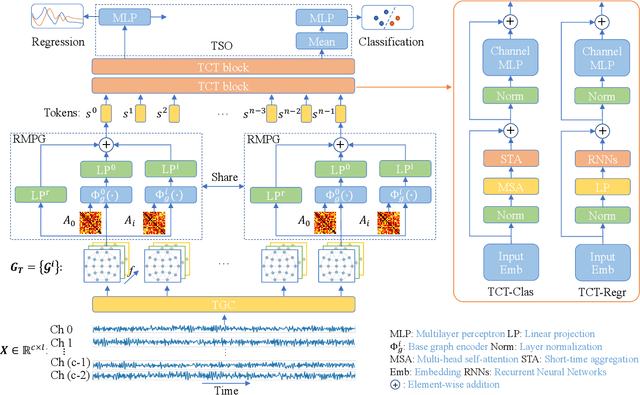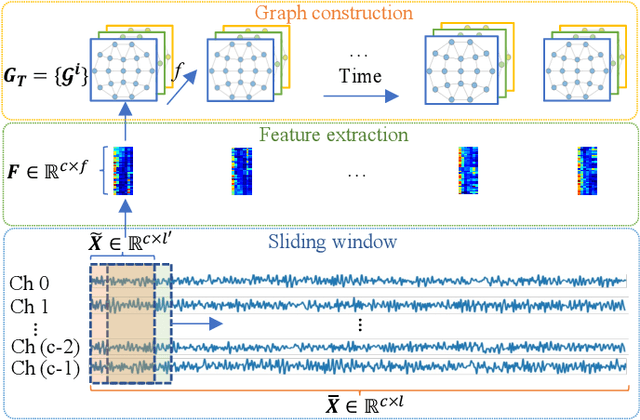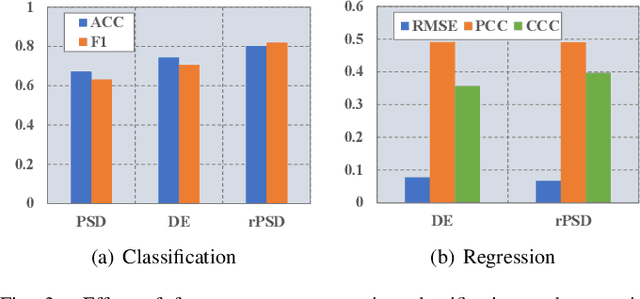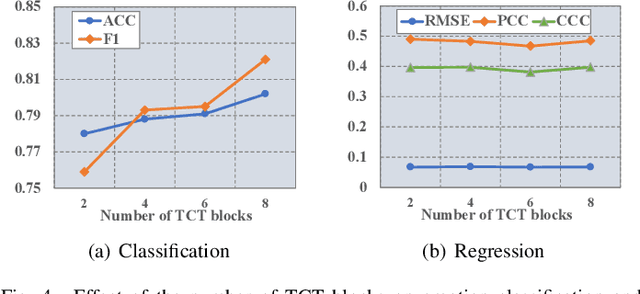Chengxuan Tong
EmT: A Novel Transformer for Generalized Cross-subject EEG Emotion Recognition
Jun 26, 2024



Abstract:Integrating prior knowledge of neurophysiology into neural network architecture enhances the performance of emotion decoding. While numerous techniques emphasize learning spatial and short-term temporal patterns, there has been limited emphasis on capturing the vital long-term contextual information associated with emotional cognitive processes. In order to address this discrepancy, we introduce a novel transformer model called emotion transformer (EmT). EmT is designed to excel in both generalized cross-subject EEG emotion classification and regression tasks. In EmT, EEG signals are transformed into a temporal graph format, creating a sequence of EEG feature graphs using a temporal graph construction module (TGC). A novel residual multi-view pyramid GCN module (RMPG) is then proposed to learn dynamic graph representations for each EEG feature graph within the series, and the learned representations of each graph are fused into one token. Furthermore, we design a temporal contextual transformer module (TCT) with two types of token mixers to learn the temporal contextual information. Finally, the task-specific output module (TSO) generates the desired outputs. Experiments on four publicly available datasets show that EmT achieves higher results than the baseline methods for both EEG emotion classification and regression tasks. The code is available at https://github.com/yi-ding-cs/EmT.
EEG-Deformer: A Dense Convolutional Transformer for Brain-computer Interfaces
Apr 25, 2024



Abstract:Effectively learning the temporal dynamics in electroencephalogram (EEG) signals is challenging yet essential for decoding brain activities using brain-computer interfaces (BCIs). Although Transformers are popular for their long-term sequential learning ability in the BCI field, most methods combining Transformers with convolutional neural networks (CNNs) fail to capture the coarse-to-fine temporal dynamics of EEG signals. To overcome this limitation, we introduce EEG-Deformer, which incorporates two main novel components into a CNN-Transformer: (1) a Hierarchical Coarse-to-Fine Transformer (HCT) block that integrates a Fine-grained Temporal Learning (FTL) branch into Transformers, effectively discerning coarse-to-fine temporal patterns; and (2) a Dense Information Purification (DIP) module, which utilizes multi-level, purified temporal information to enhance decoding accuracy. Comprehensive experiments on three representative cognitive tasks consistently verify the generalizability of our proposed EEG-Deformer, demonstrating that it either outperforms existing state-of-the-art methods or is comparable to them. Visualization results show that EEG-Deformer learns from neurophysiologically meaningful brain regions for the corresponding cognitive tasks. The source code can be found at https://github.com/yi-ding-cs/EEG-Deformer.
 Add to Chrome
Add to Chrome Add to Firefox
Add to Firefox Add to Edge
Add to Edge